Resources
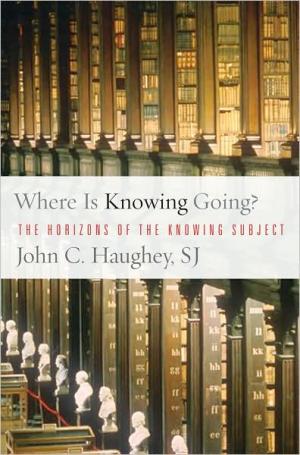
Catholic institutions of higher learning are at a crossroads: How can they remain true to their roots while recognizing that many of their administrations, faculties, and student bodies have little connection with the tradition? How can these institutions remain competitive while maintaining a relationship to the Church? During the past several years, Catholic theologian John C. Haughey, SJ, has conducted groundbreaking research on these questions. He has done this in tandem with a team of Catholic scholars from around the United States. Haughey has also conducted numerous workshops with faculty at a dozen Catholic colleges and universities to learn firsthand about their research and teaching aspirations. Those relationships and conversations provide the foundation for this book's many insights. In "Where Is Knowing Going?", Haughey explores what constitutes the Catholic identity of Catholic colleges and universities. Going beyond a doctrinal understanding of Catholic identity to one that engages and is engaged by the intellectual tradition of Catholicism, Haughey does not find that the issue of Catholic identity is adequately dealt with by marketing the distinctive identities of institutions in terms of their founding religious orders or saints. He provides a sure-handed process whereby the pursuits of individual faculty can be better aligned with the formal mission of the institution. (From the Publisher)
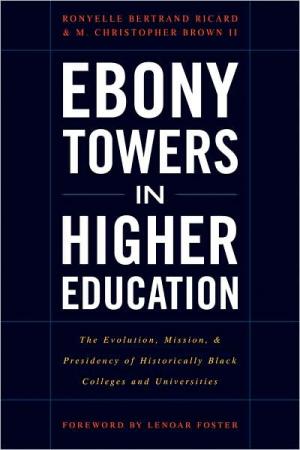
What is the purpose of black colleges? Why do black colleges continue to exist? Are black colleges necessary? Historically Black colleges and universities (HBCUs) are at the same time the least studied and the least understood institutions of higher education and the most maligned and the most endangered. This unique study examines the mission of four-year HBCUs from the perspective of the campus president, as a foundation for understanding the relevance and role of these institutions. This is the first research to focus on the role of presidents of black colleges; is based on extensive interviews with fifteen presidents; and takes into particular account the type of campus environments in which they operate. Unlike community colleges, women's colleges, men's colleges, and Hispanic-serving colleges, Black colleges are racially identifiable institutions. They also vary significantly in, among other characteristics: size, control (public or private), religious affiliation, gender composition, and available resources. Although united in the historic mission of educating African Americans, each black college or university has its own identity and set of educational objectives. The book examines how presidents define and implement mission in the context of their campuses, view the challenges they face, and confront the factors that promote or hinder implementation of their missions. (From the Publisher)
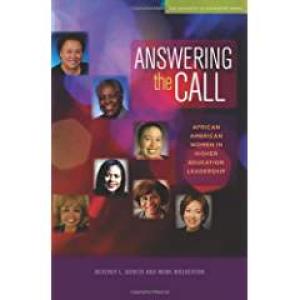
Although much has been written about leaders and leadership, we unfortunately know little about women, particularly minority women, who fill this particular role. This book the second in a series that explores women leaders in different contexts presents the stories, and the reflections on their paths to leadership, of seven African American women. Five are, or have been, college presidents; three have devoted a good portion of their lives to leadership in higher education policy at state and/or national levels. Each has been the first woman, or first African American, or first African American woman in one or more of the positions of authority that she has held. Along the way, they have overcome the double bind of sexism and racism that can inhibit the professional attainment of African American women, particularly as they move toward the top of their professions. Although their pathways into leadership are different, definite similarities in their experiences, values, and beliefs emerge. Their values took root in the 1960s, a time of strong cohesion in the Black community, a time during which African Americans and women made great strides toward equality. They recognize that they owe their strength to the confidence and sense of empowerment instilled in each of them by parents and early role models. Several of them believe that their leadership skills were born out of their childhood experiences. Grateful for the support they have received, these women leaders express a need to give back to those communities that nourished their growth and leadership of which this book is a manifestation. At a time when national demographic dataindicate that a significant turnover in college leadership is about to occur presenting increased opportunities for women and minorities these African American women leaders hope that the strategies they describe, the insights they impart, the experiences they recount, and, most of all, the passion they have sustained for the betterment of and greater inclusiveness in higher education, will inspire the next generation of women to answer the leadership call. The African-American Women Leaders Covered in this Book: Debra Austin, Lois Carson, Marvalene Hughes, Yolanda Moses, Beverly Daniel Tatum, Jerry Sue Thornton, Belle S. Wheelan. These women exude strength and self-confidence. They each hold the belief, as Belle Wheelan puts it, that "with a little heart and a lot of learning I can do anything". (From the Publisher)
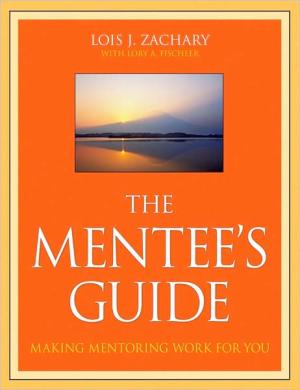
Praise for The Mentee's Guide "The Mentee's Guide inspires and guides the potential mentee, provides new insights for the adventure in learning that lies ahead, and underscores my personal belief and experience that mentoring is circular. The mentor gains as much as the mentee in this evocative relationship. Lois Zachary's new book is a great gift." —Frances Hesselbein, chairman and founding president, Leader to Leader Institute "Whether you are the mentee or mentor, born or made for the role, you will gain much more from the relationship by practicing the fun and easy A-to-Z principles of The Mentee's Guide by the master of excellence, Lois Zachary." —Ken Shelton, editor, Leadership Excellence "With this deeply practical book filled with stories and useful exercises, Lois Zachary completes her groundbreaking trilogy on mentoring. Must-reading for those in search of a richer understanding of this deeply human relationship as well as anyone seeking a mentor, whether for new skills, job advancement, or deeper wisdom." —Laurent A. Parks Daloz, senior fellow, the Whidbey Institute, and author, Mentor: Guiding the Journey of Adult Learners
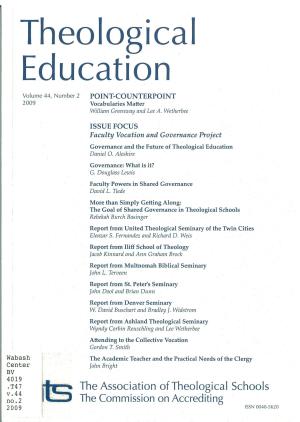
Journal Issue. Full text is available online.
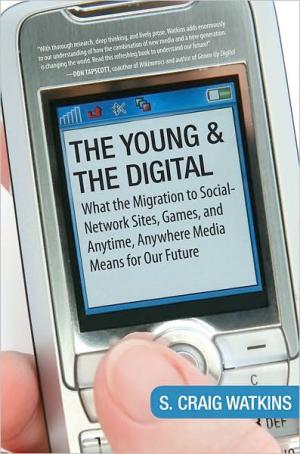
A media expert explains how and why the digital migration is transforming youth culture, identity, and everyday life
 
For the first time in over fifty years, television is no longer our dominant medium: young people are now spending an average of six to eight hours a day online. Watkins contends that most teens and twenty-somethings migrate online to share their lives with friends—something television simply cannot offer—and the ubiquitous presence of cell phones, laptops, and iPods places them at the center of our evolving digital landscape.
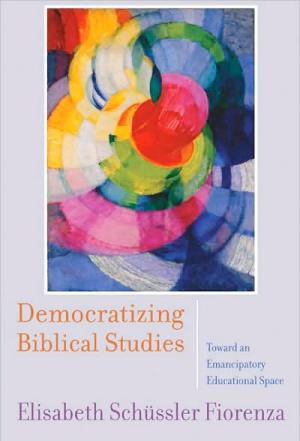
In this book, Elisabeth Schüssler Fiorenza continues her exploration of a radical democratic ethos in graduate biblical education. She argues that it is necessary to reframe the field of biblical studies and replace the competitive teaching models prevalent in graduate programs with an emancipatory, radical democratic pedagogical model that fosters collaboration, participation, and critical engagement. To achieve constructive engagement with the differences of social location and diversity of perspectives that exist both in the Bible and in our contexts, we must become aware of the pitfalls of one-dimensional thinking that seeks to use the Bible to find definite answers and to exclude different understandings. Schüssler Fiorenza addresses such questions as, What are the educational practices and procedures that are advocated by traditional educational models and how can they be changed? What kind of educational and communicative practices do biblical studies need to develop in order to fashion an emancipatory democratizing rhetorical space and a forum of many voices? To envision, articulate, debate, and practice a radical democratic ethos of biblical studies, she identifies emerging didactic models that can foster such a radical democratic style of learning. (From the Publisher)
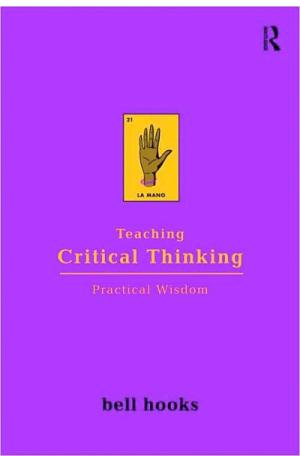
In Teaching Critical Thinking, renowned cultural critic and progressive educator bell hooks addresses some of the most compelling issues facing teaching issues facing teachers in and out of the classroom today. In a series of short, accessible, and enlightening essays, hooks explores of the confounding and sometimes controversial topics that teachers and students have urged her to address since the publication of the previous best-selling volums in her Teaching series, Teaching to Transgress and Teaching Community. The issues are varied and broad, from whether meaningful teaching can take place in a large classroom setting to confronting issues of self-esteem. One professor, for example, asked how black female professors can maintain positive authority in a classroom without being seen through the lens of negative racist, sexist stereotypes. One teacher asked how to handle tears in the classroom. while another wanted to know how to use humor as a tool for learning. Addressing questions of race, gender, and class in this work, hooks discusses the complex balance that allows us to teach, value, and learn from works written by racist and sexist authors. Highlighting the importance of reading, she insists on the primacy of free speech, a democratic education of literacy. Throughout these essays, she celebrates the transformative power of critical thinking. This is provocative, powerful, and joyful intellectual work. It is a must read for anyone who is at all interested in education today. (From the Publisher)
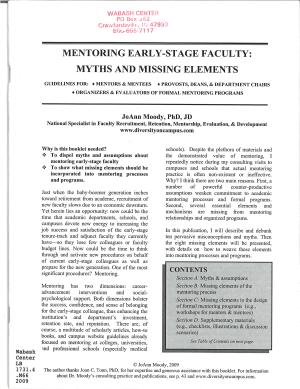
As in her other work, JoAnn Moody demonstrates a keen understanding of the day-to-day challenges of faculty issues, drawing from careful research as well as from close connections to the issues facing early-stage faculty. She reminds us that effective mentoring is designed around a flexible set of approaches and cannot be based on what she appropriately labels myths.
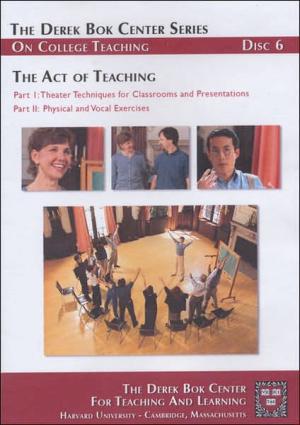
Teachers can convey their ideas more powerfully if they take time to improve their presentation skills. The Act of Teaching , Nancy Houfek, Head of Voice and Speech for the American Repertory Theatre at Harvard University, leads a workshop that stresses the importance of communication with the whole self in order to reach an audience. Throughout the workshop, she introduces participants to the same techniques that actors use to prepare and deliver a performance, including warm-ups, relaxation, strengthening, and visualizing exercises. In Part I, Theater Techniques for Classroom and Presentation, Houfek focuses on overcoming stage fright, knowing your objectives, and "landing your message." In part II, Physical and Vocal Exercises , she leads teachers through 20 minutes of exercises specifically designed to prepare them for the physical challenges of the classroom, beginning with "Waking Up the Body," and moving to vocal warm-ups that treat the voice as an instrument requiring care. Together, these techniques and exercises present a new set of resources that greatly broaden the avenues we customarily use in communicating with colleagues and students. An illustrated guide to exercises is included ad a PDF. (From the Publisher)